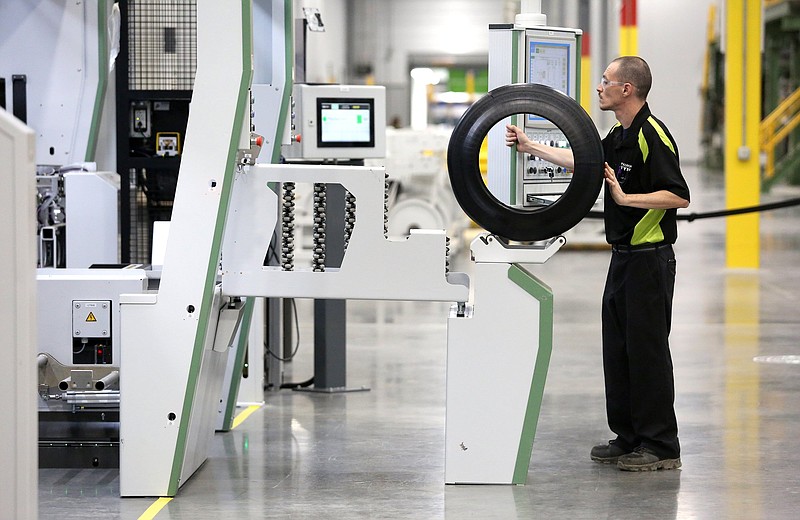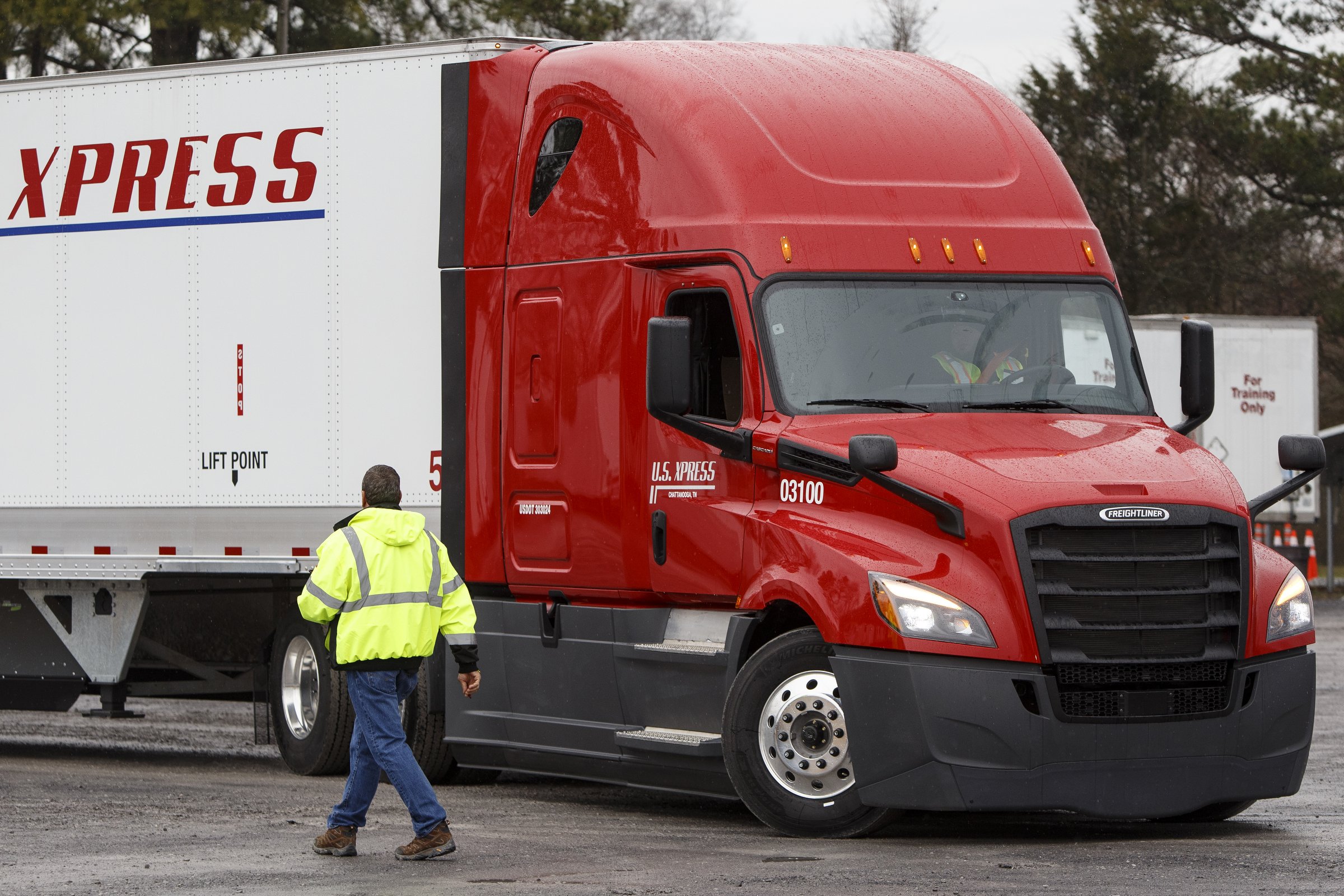Nokian Tyres officials like to say the company built the most environmentally sustainable tire factory in the world when it opened its Dayton, Tennessee, plant a year-and-a-half ago.
The U.S. Green Building Council recognized the company's efforts when it conveyed Leadership in Energy and Environmental Design (LEED) v4 Gold certification for the plant's administration building this year, company officials say.
Last year, the council awarded LEED v4 Silver certification for the production facility at the nearly $360 million factory. The Nokian plant is the first in the U.S. tire industry to hit the key milestone, according to the manufacturer.
More companies are moving toward environmental sustainability as part of their idea of corporate responsibility, with officials seeing it as a best practice relating to both business and stewardship.
Wes Boling, a Nokian spokesman at the Dayton plant, says other tire-makers have had training or similar facilities earn the LEED v4 Silver mark, but not the factory building itself.
"We've long been a global leader in sustainability. It's one of our core values," he says about the Finland-based tire company.
Nokian built a new solar array at the plant where it draws much of its daily electricity. The solar array fully powers an administration building and some of the processes in the production facility, Boling says.
Also, the company installed a range of sustainable elements at the factory including smart building automation, eco-friendly building materials, efficient water and waste management systems, electric vehicle charging stations in the parking lot and renewable energy generation.
According to Nokian, it designed the factory to minimize harmful emissions while producing tires with sustainability in mind. The company excludes harmful high-aromatic oils from its tire compounds, and it has reduced the rolling resistance of its products by an average of 8% since 2013, which is equivalent to the exhaust fumes of 65,000 cars annually.
The company reports it has reduced carbon dioxide emissions at its global production facilities by 44% in the last six years.
A Greener Route
Chattanooga-based trucking company U.S. Xpress recently published its first corporate responsibility report, which it intends to do annually moving ahead.
Brad Carmony, a company spokesman, says the report shows the company's desire to improve in such realms as environmental responsibility, community engagement and corporate leadership.
The report highlighted U.S. Xpress' reduction in carbon emissions in its fleet of more than 6,500 trucks, in its maintenance facilities and at the company's headquarters.
According to the company, a commitment to the U.S. Environmental Protection Agency's SmartWay program has sharply reduced emissions. In all, U.S. Xpress plans to reduce its carbon footprint by 60% by the year 2035, the company says.
Carmony says it's not only the carrier's desire to improve, but the businesses with which it works. Companies such as Home Depot, Walmart, and Campbell's Soup are interested in the such initiatives, and those ventures want to work with partners "that have a clearly defined commitment to their goals and objectives," he says.
The company's environmental and sustainability efforts were recognized by two industry groups. Supply & Demand Chain Executive presented the company with its 2020 Green Supply Chain Award. The Tennessee Trucking Association awarded U.S. Xpress its 2020 Clean Diesel Leadership Award.
VW's Green Path
In 2011, shortly after VW's Chattanooga production plant opened, the facility became the first automotive manufacturing plant to achieve LEED platinum certification, which represented the highest level of environmental performance recognized by the U.S. Green Building Council.
VW says the plant is 40% more energy efficient than a typical manufacturing facility in the U.S. VW officials termed the LEED platinum designation "the fulfillment of a promise Volkswagen madeto this community to work in harmony with the environment."
While the German company later faced the storm created by the diesel pollution scandal, out of it came a massive electric vehicle production push. In March, the company reported it will invest about $19.1 billion in its electric vehicle programs worldwide by 2025.
In Chattanooga, the automaker is spending $800 million on an expansion to make an electric SUV called the ID.4. The work is increasing the plant's footprint by more than 750,000 square feet.
"This is a really bold move," says Tom du Plessis, Volkswagen Chattanooga's chief executive. "It's a new exciting journey."
When production of the SUV begins in 2022, officials say the Chattanooga plant will have capacity to assemble more than 100,000 EVs annually.
READ MORE
* Getting clean: Green means business in building a more energy-efficient future
* Making change: Chattanooga small businesses make giving back a big focus
* Bright futures: STEP-UP helps diverse students earn career success

